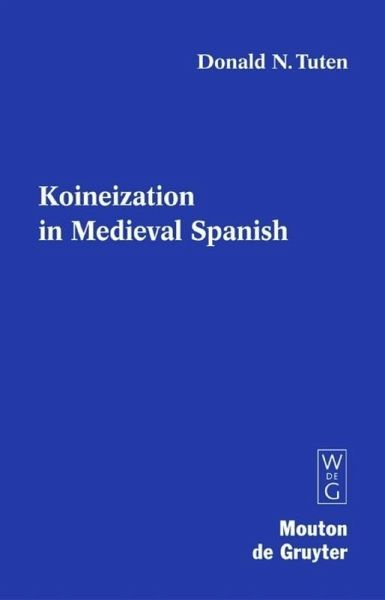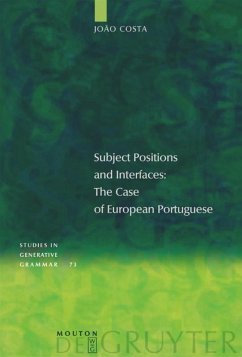
Koineization in Medieval Spanish

PAYBACK Punkte
41 °P sammeln!
How and why do changes happen when and where they do? Is it possible to explain changes that occurred centuries ago? These are the central questions addressed in this book, in which the author argues that the development of numerous features of medieval (and modern) Spanish can best be explained as the results of koineization, a process in which mixing among speakers of different dialects leads to the rapid formation of a new mixed and generally simplified variety. The book includes a complete introduction to koineization and detailed study of three stages of dialect mixing in medieval Spanish...
How and why do changes happen when and where they do? Is it possible to explain changes that occurred centuries ago? These are the central questions addressed in this book, in which the author argues that the development of numerous features of medieval (and modern) Spanish can best be explained as the results of koineization, a process in which mixing among speakers of different dialects leads to the rapid formation of a new mixed and generally simplified variety. The book includes a complete introduction to koineization and detailed study of three stages of dialect mixing in medieval Spanish.













